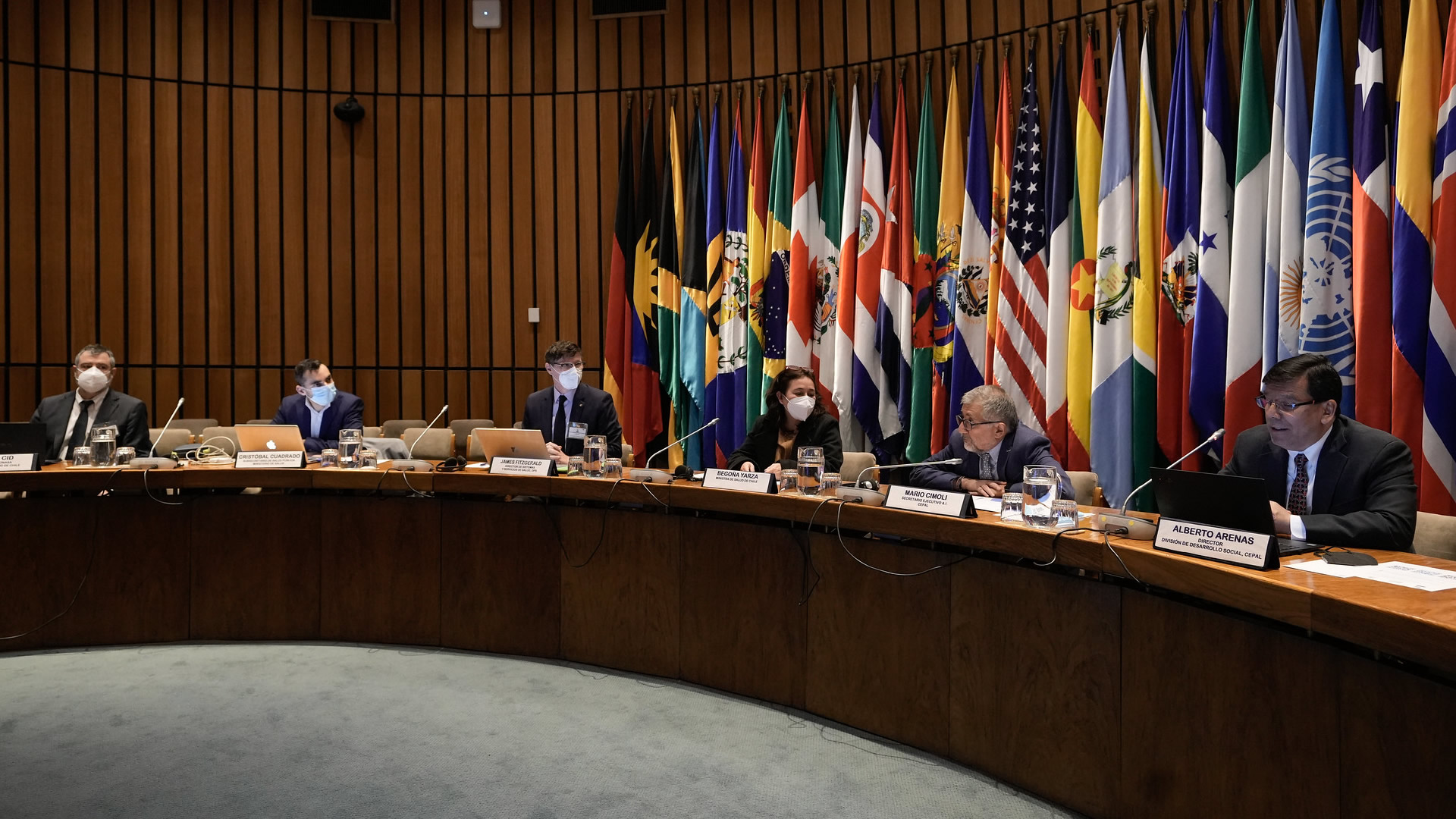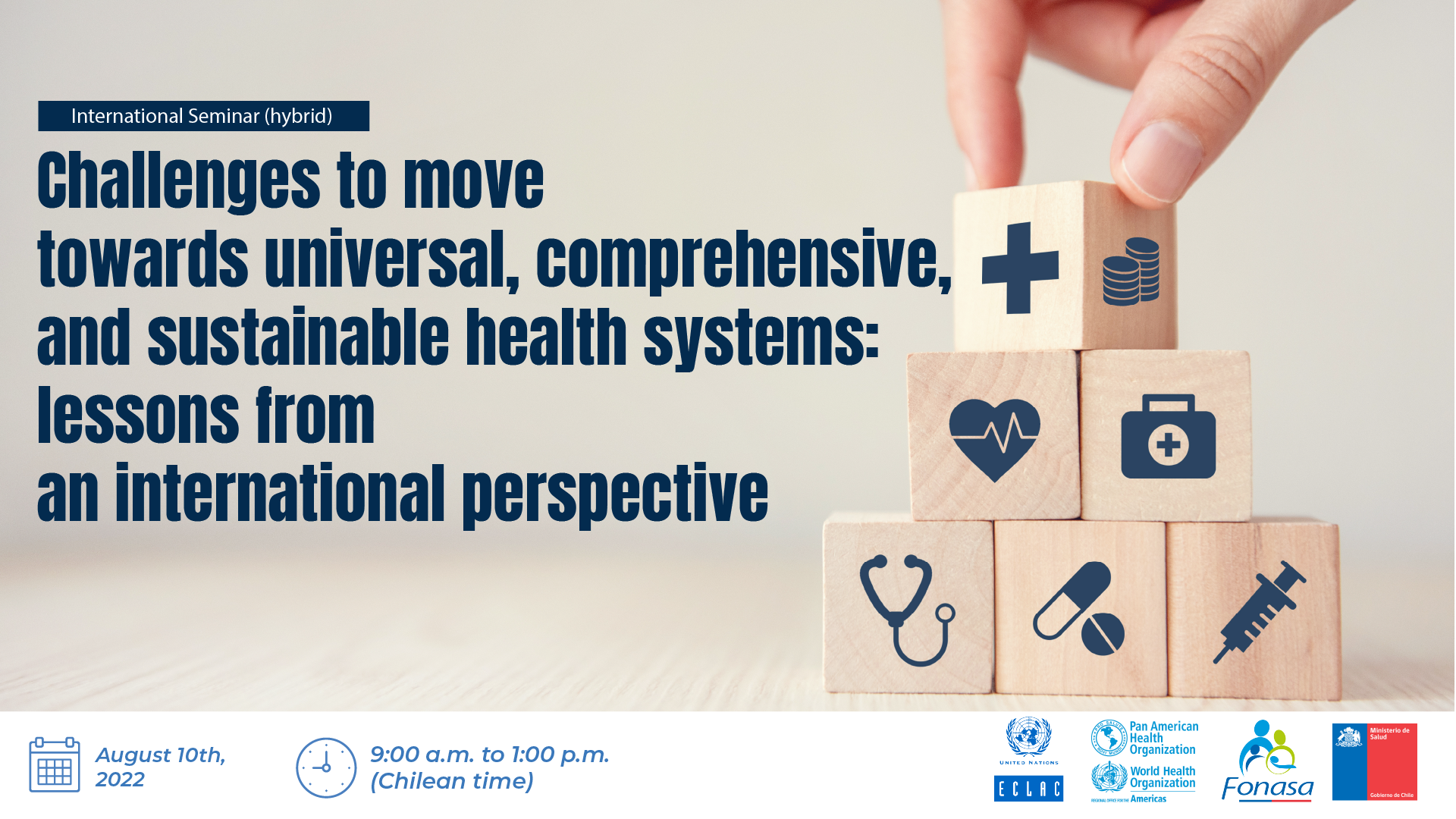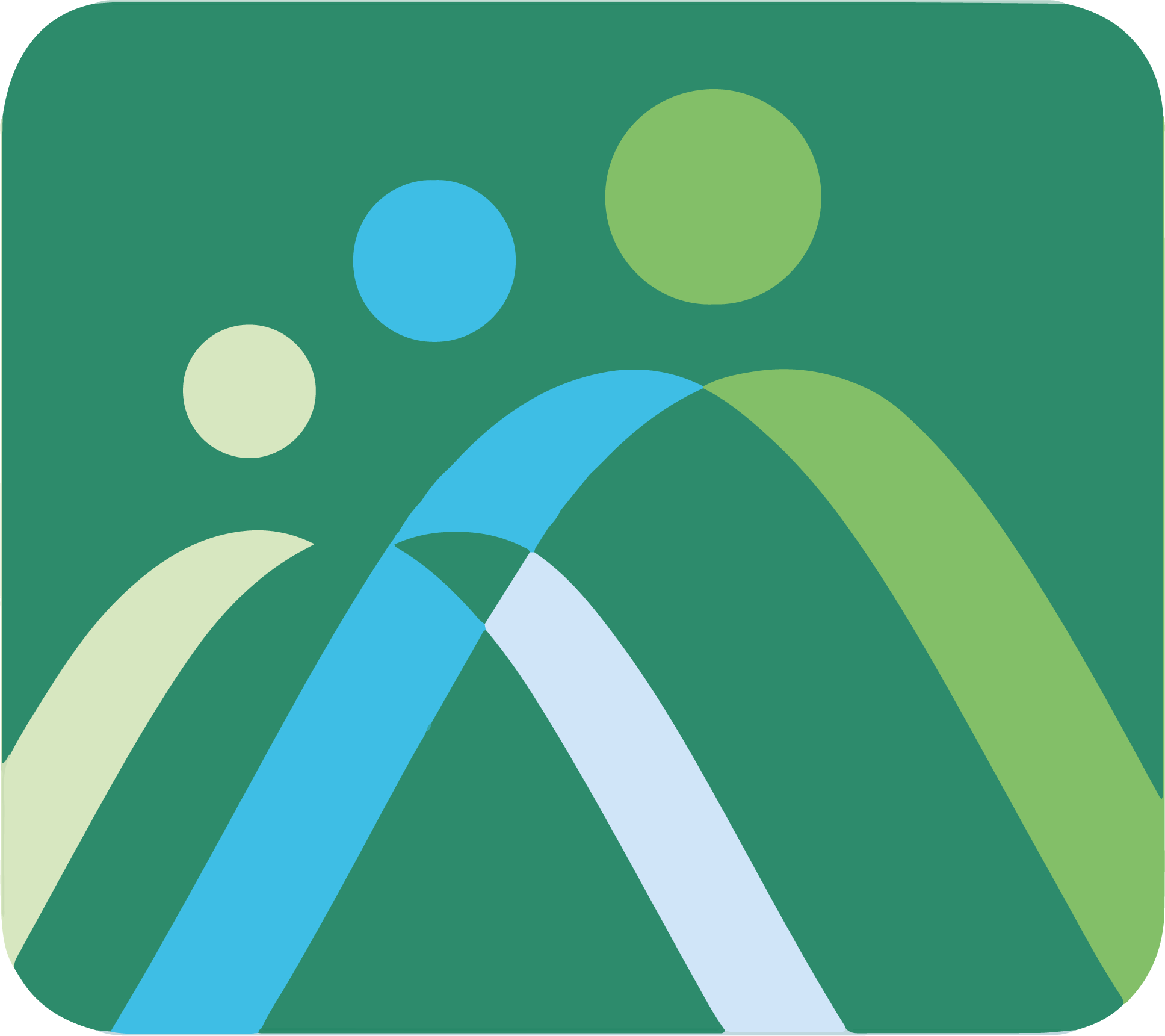It is Time to Transform Health Systems in Latin America and the Caribbean and Make Progress on Universality, Comprehensiveness, Sustainability and Resilience
Work area(s)
Mario Cimoli, Acting Executive Secretary of ECLAC, inaugurated an international seminar along with Chile’s Minister of Health, María Begoña Yarza, and the Director of PAHO, Carissa F. Etienne.

The COVID-19 pandemic has opened a window of opportunity for transforming Latin America and the Caribbean’s health systems and making progress on universality, comprehensiveness and financial sustainability, according to the Chilean authorities and international specialists gathered at a seminar held this Wednesday, August 10, at the headquarters of the Economic Commission for Latin America and the Caribbean (ECLAC) in Santiago, Chile.
The international seminar “Challenges to move towards universal, comprehensive, and sustainable health systems: lessons from an international perspective” featured opening remarks by Mario Cimoli, Acting Executive Secretary of ECLAC; María Begoña Yarza, Minister of Health of Chile; and Carissa F. Etienne, Director of the Pan American Health Organization (PAHO). Alberto Arenas de Mesa, Director of ECLAC’s Social Development Division, acted as moderator.
In his remarks, Mario Cimoli thanked Chile’s Health Ministry for the trust it has put in ECLAC upon requesting technical assistance to support the process of reforming the national health system, and he emphasized that having universal access to health systems is vital for moving towards development with equality in the region.
“Growth with high productivity, global competitiveness and social inclusion is not possible if the population cannot access quality health care. That is what we are referring to when we talk about the inefficiency of inequality,” he stressed, adding that States’ capacity to raise enough resources to finance universal, comprehensive, sustainable and resilient systems is key to carrying out the reforms needed in the region, one of the pillars of which must be strengthening primary health care.
Chile’s Minister of Health, María Begoña Yarza, expressed gratitude for the work of the various United Nations System organizations that are supporting the reform process in Chile, including ECLAC and PAHO. “We come to this place, to ECLAC, to ask that you collaborate with the greatest challenge, since the 1952 reform, that Chile has in the health arena. And what we obtained was a generous reception from this organization, where development issues are discussed, because we cannot talk about development if we don’t talk about health,” she said.
In Chile, the Minister affirmed, health depends on people’s ability to pay, which means that one of the first challenges of the reform underway is to put an end to the existing structural inequality and move towards a universal health system, she stated.
Meanwhile, Carissa F. Etienne, Director of PAHO, indicated that “the data is clear: the region of the Americas reported the highest number of COVID-19 cases and the highest number of fatalities. Our public health infrastructure was not prepared and our health systems fragmented, segmented and under-resourced.”
The senior official declared that “the time for substantive transformation of our health systems is now, and such transformation must be guided by extensive analysis of the performance of health systems during the pandemic. It must be founded on the principle that everyone in this region has the right to health.”
According to ECLAC’s data, public spending on health in Latin America and the Caribbean amounts to 3.8% of GDP, far below the 6% of GDP recommended by the World Health Organization (WHO).
Likewise, 32.2% of total spending on health in the region corresponds to out-of-pocket household expenses (in comparison with 21% in OECD countries), with a third of Latin American and Caribbean countries having out-of-pocket expenses that account for more than 40% of total spending, which exposes the population to critical situations of financial vulnerability, particularly in light of the multiple crises the region is experiencing (economic, health and social).
Health and social protection systems must be at the center of sustainable development strategies, ECLAC has argued, which means that it is critical to consolidate a social compact centered on rights and equality, linked to a progressive fiscal compact that would guarantee the financial sustainability of health systems and that would move towards a welfare state.
The event was organized by ECLAC in collaboration with the Ministry of Health of Chile, the National Health Fund (FONASA) of Chile and PAHO, in the framework of the technical assistance that ECLAC is providing to the Chilean government on matters related to the health system reform.
The seminar was aimed at learning about the experience of distinct regions and countries – such as Canada and Spain – that have more robust health systems and are characterized by their universality, comprehensiveness and financial sustainability, as well as the main lessons learned and challenges faced by countries that have recently implemented reforms.
Related content

Challenges to move towards universal, comprehensive, and sustainable health systems: lessons from an international perspective
This hybrid seminar organized by ECLAC with the collaboration of the Ministry of Health of Chile, FONASA and Pan American Health Organization aims to learn about the experience of countries from…
Related link(s)
Country(ies)
-
Chile
- Latin America and the Caribbean
Contact
Public Information Unit
- prensa@cepal.org
- (56 2) 2210 2040

